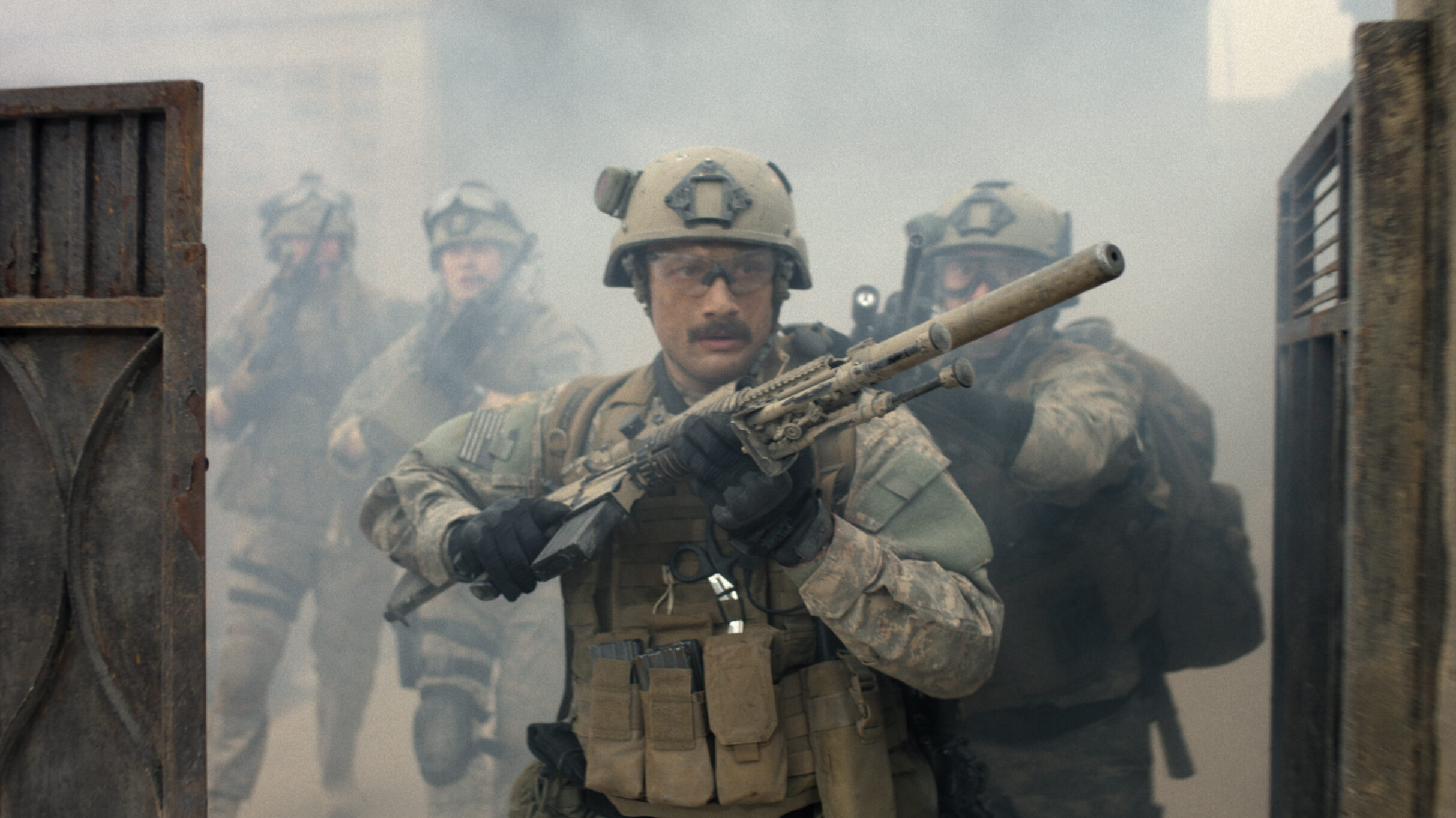A24’s upcoming film, Warfare, directed by Alex Garland and Iraq War veteran Ray Mendoza, delivers an unfiltered, real-time portrayal of modern combat through the eyes of Navy SEALs on a perilous surveillance mission in insurgent territory.
The film is based on real-life events from the 2006 Ramadi operation, constructed from firsthand accounts of those involved. Featuring an ensemble cast of rising stars, Warfare brings an immersive, real-time depiction of combat, blending meticulous authenticity with gripping storytelling.
Cinema has long grappled with the realities of war, oscillating between dramatization and raw realism. Warfare, the latest film from A24, takes the latter approach, forging an intense, boots-on-the-ground narrative that eschews romanticization in favor of stark authenticity. Written and directed by Alex Garland (Civil War, 28 Days Later) and combat veteran Ray Mendoza, the film reconstructs a harrowing SEAL operation in Ramadi, Iraq, during 2006. Through extended takes reminiscent of 1917 and Black Hawk Down, expert cinematography, and firsthand testimony, Warfare immerses audiences in the confusion and camaraderie of combat.
A Navy SEAL platoon embarks on a high-stakes surveillance mission in insurgent-controlled territory. What begins as a routine operation quickly spirals into chaos when the team is discovered. Facing relentless enemy fire, the SEALs must navigate the urban battlefield, relying on their training and each other to survive. The film’s real-time progression and unfiltered approach capture the sheer unpredictability and intensity of modern warfare.
Garland and Mendoza approached Warfare with a commitment to accuracy, constructing a screenplay from interviews with Navy SEALs who participated in the actual mission. The filmmakers adhered to a forensic storytelling method, ensuring that each event in the film aligned with verified accounts. Unlike traditional war films that often embellish for dramatic effect, Warfare presents an unvarnished depiction of combat, devoid of cinematic tropes.
The production featured an ensemble cast, including Charles Melton, Will Poulter, D’Pharaoh Woon-A-Tai, Cosmo Jarvis, Joseph Quinn, and Kit Connor. Their performances were shaped by rigorous military training and direct guidance from veterans who experienced the operation firsthand. The film’s cinematography employs extended takes and immersive sound design to replicate the chaos and immediacy of battle.
In November 2006, a team of Navy SEALs, alongside Iraqi scouts and Marines, was deployed to surveil a hostile urban area in Ramadi. Divided into three operational groups, one team unknowingly positioned themselves adjacent to an insurgent stronghold. A sudden grenade attack injured SEAL sniper Elliott Miller and another team member. As they attempted to extract their wounded comrades, an IED explosion intensified the crisis. Reinforcements arrived, but the team remained pinned down until armored support enabled their eventual evacuation.
The film pays tribute to Miller, whose near-fatal injuries and evacuation form the narrative core of Warfare. By reconstructing these events with firsthand accounts, the filmmakers provide audiences with a visceral understanding of combat’s unpredictability and psychological toll.
Unlike traditional war films, Warfare discards glorification and spectacle in favor of raw authenticity. “Reality doesn’t let people off the hook; there isn’t a dissolve or a cut or some music to cheer you up,” Garland explains. This ethos pervades the film, which unfolds without embellishment, relying on stark realism to convey the harrowing nature of combat.
Mendoza’s personal connection to the story—having carried the unconscious Miller to safety—further deepens the film’s impact. The process of gathering and reconstructing memories became both a narrative device and a means of reflection for the veterans involved. “Memories become compartmentalized over time,” Mendoza notes. “Recounting them unlocked details buried for years.”
Warfare stands as a testament to the sacrifices of those who serve, offering a brutally honest portrayal of the realities of war. By grounding its narrative in the lived experiences of veterans, the film fosters a deeper dialogue on combat’s impact and the resilience of those who endure it. With its unwavering commitment to authenticity, Warfare sets a new standard for the war film genre, inviting audiences to witness, rather than merely observe, the cost of battle. Beyond its cinematic achievements, Warfare challenges viewers to confront the raw, unvarnished truth of modern warfare, leaving a lasting impact on both the genre and its audience.
Photo Courtesy: A24
